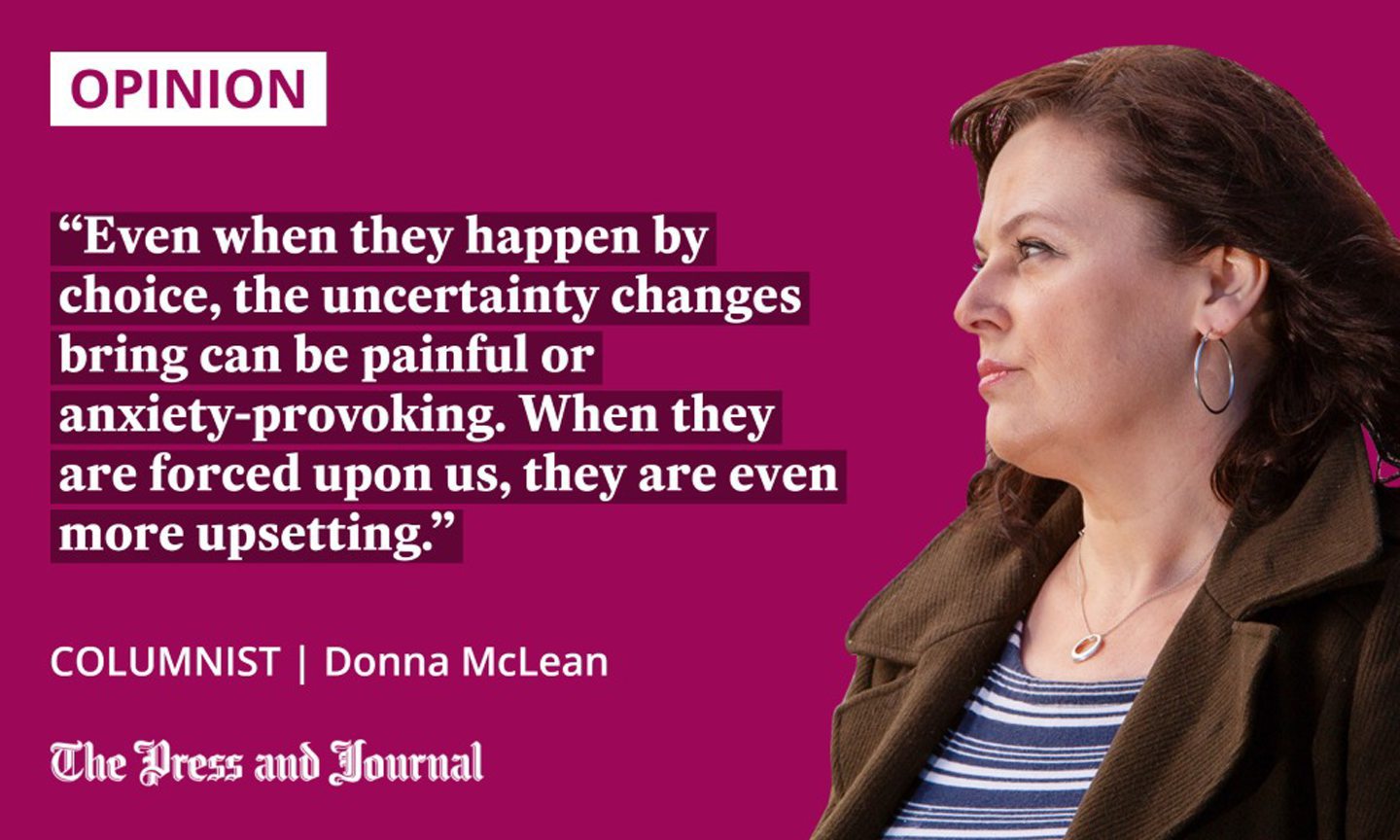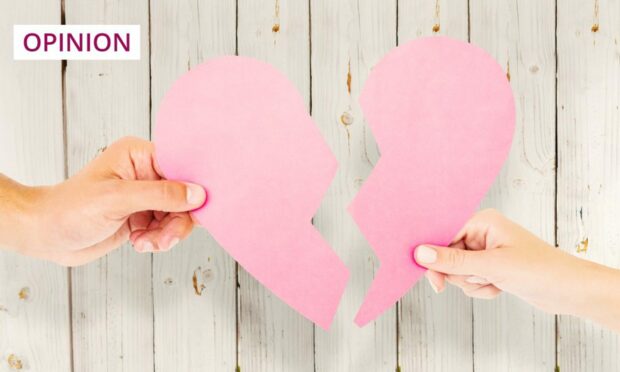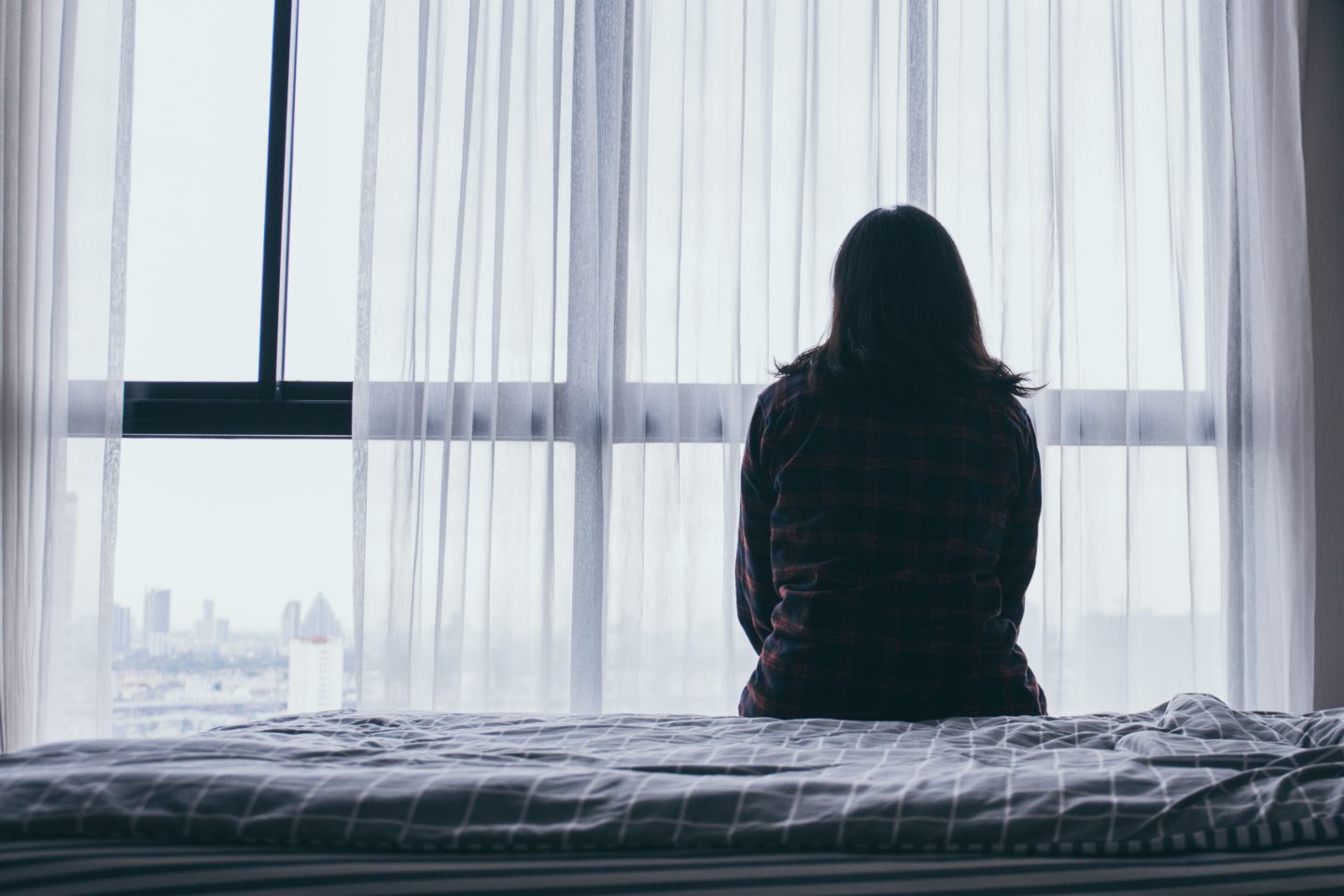Change involves adapting – sometimes reluctantly – to a new way of living, but it shouldn’t stop us from being happy in the long run, writes Donna McLean.
I’ve been thinking a lot about life transitions lately. They’re often the most difficult periods in our lives.
Even when they happen by choice, the uncertainty changes bring can be painful or anxiety-provoking. When they are forced upon us, they are even more upsetting.
Take the coronavirus pandemic, which caused a huge, involuntary transition from one way of living to another. Our jobs, personal lives and our health concerns shifted on their axis, and things have never really returned to “normal”.
Between 2020 and 2022, I experienced more life transitions than in the previous 45 years of being alive. I changed job – my work in mental health stopped as Covid hit – and I haven’t yet returned to that field, despite working in it for almost 30 years. I left my house – involuntarily – and then I voluntarily moved country.

The last couple of years have become a defining period in my life. I turned 50 in 2022 and, shortly afterwards, experienced a bereavement. Life and death, joy and sorrow, two sides of the same coin.
Experiencing grief isn’t a new thing. Life has been peppered with losses, and they are, sadly, inevitable. But I’ve come to view this kind of transition as the basis for love. And a reminder not to take people for granted.
So much research in recent years has shown that the people who end up being the happiest are the people who have good social connections. Connections of all kinds – not just partners and family members, but also close friends, colleagues, people you meet in college, those you share hobbies and interests with, your neighbours.
My view? Tell people you love them. Listen, attentively, not distractedly. Return phone calls. Send cards.
Take the risk and form a new connection. Get out of your own head, off your phone and rejoin the world! (Strong note to self, as I have more screen time than your average nocturnal teenager.)
‘Well… How did I get here?’
Most people my age struggle with at least one of the “normal” transitions, such as parents getting older, changing health needs, raising teenagers, contemplating divorce, encountering financial and job insecurities.
These things may be inevitable, but it doesn’t mean they’re not mentally and sometimes physically demanding, particularly for those who’ve taken responsibility for the long-term care of others.
Every one of these changes involves adapting – often reluctantly – to a new way of living, and this fundamentally alters your self-perception. It can feel like you’re losing yourself in the whirlwind of other people’s changing needs.
Do you ever look in the mirror and ask: “Who am I?” Or, as Talking Heads put it: “And you may ask yourself: ‘Well… How did I get here?'”
How did I get here? I do ask myself this question. If we can step back and think about our life transitions, however, maybe we can rein in our natural response, which is to fight against them. This is, of course, a fight we can’t win, given the inevitability.
It might even be possible to change our viewpoint, and see these life transitions differently; take on a new perspective, even for the changes that are forced upon us.
Take a horrible break-up, for example. Of course, you – or I – will listen to that Spotify playlist or play those records from the shared collection that has been reluctantly divided, crying ’til our eyes are all red and puffy. But, at the same time, we do learn from the experience, and, eventually, we find new love.
I stopped compromising my own ability to be happy
When I was teaching mindfulness and facilitating mental health and recovery groups, I met a lot of people – particularly, but not just, women in their late 40s and early 50s – who believed that life was passing them by. They felt they were being taken for granted, and were living their lives in a mundane, grey landscape.
Whatever happened to “life begins at 40”? My early 40s were some of the toughest years of my life, dealing with a chronic illness, stressful job, young children and an unhappy relationship. But something shifted in me completely in my mid to late 40s, and I believe that happened for three reasons: one, I trained as a mindfulness teacher; two, I became politically active again; three, I started writing.
Despite all the challenges which still existed, I had changed my perspective of myself, my life, my options, my future
Despite all the challenges which still existed, I had changed my perspective of myself, my life, my options, my future. I had something to believe in. I stopped compromising my own ability to be happy.
There’s a well-known study in which people are asked, near the end of their life, if they have any regrets. One response comes up again and again is: “I wish I hadn’t worried so much about what people thought of me, and I had done more of what makes me happy.” I see that as a rule to live by.
Donna McLean is originally from Ayrshire and is a mum of twins, writer and activist



Conversation